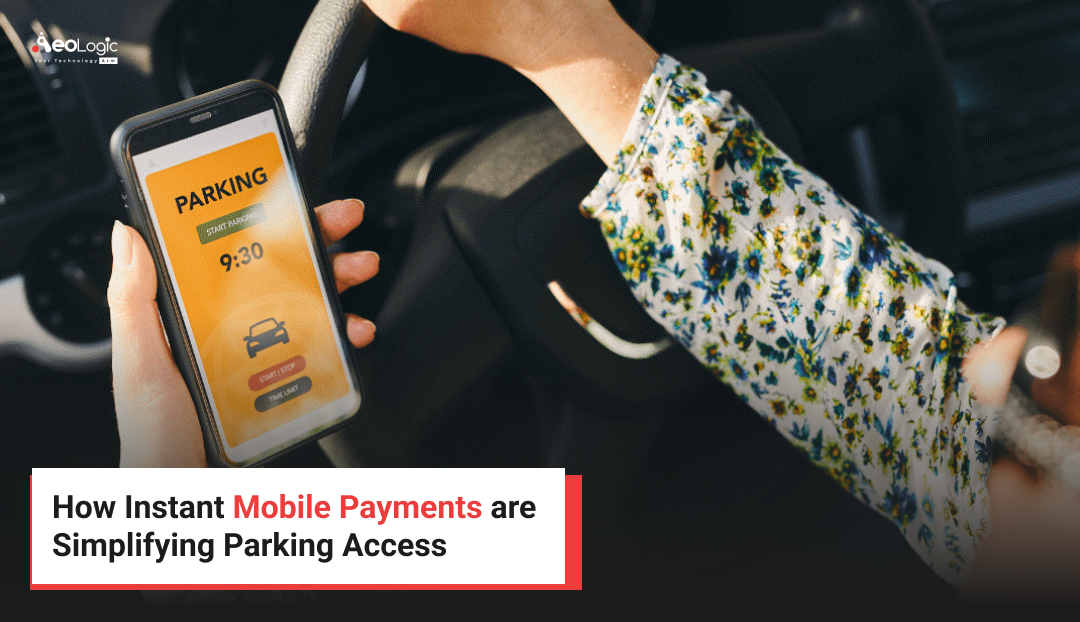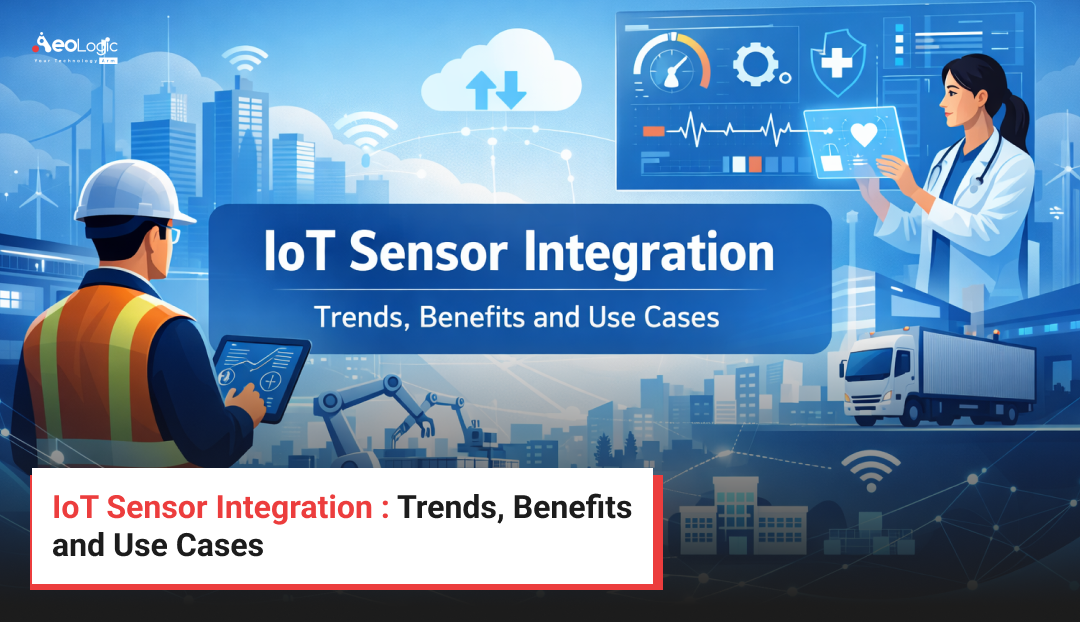It is the days of waiting in long queues to search for coins that have gone or pay parking fee. Mobile parking payment has emerged as a game-changing solution that is changing how we reach and pay for parking locations in cities around the world. With more than 87% of American smartphone owners, changes towards digital parking solutions have never been more time or necessary.
This revolutionary technology is not only about convenience – it is about creating smart, more efficient urban environment where drivers can focus on their destinations rather than parking troubles. Until the contactless parking experiences from the QR code parking system, mobile payment solutions are re -shaping the entire parking ecosystem.
The Evolution of Parking Payment Systems
From Coins to Digital: A Transformation Story
Traditional parking systems have long been plagued with disabilities that disappoint drivers and operators. Parking meters that only accept accurate changes, broken payment machines and time -taking manual processes are ideal for decades. The introduction of mobile parking payment systems has addressed these pain points, offering unprecedented facilities and efficiency.
According to recent industry data, cities applying digital parking solutions have seen 40% decrease in complaints related to parking and 25% increase in parking compliance rates. These data highlight the intensive impact of modernization to parking infrastructure through technology. This change is beyond simple payment processing to include comprehensive parking management solutions that benefit both users and operators.
How Mobile Parking Payment Works
QR Code Parking: Instant Access at Your Fingertips
The most popular implementation of mobile parking payment includes QR code parking technology that streamlines the entire parking process. The drivers scan only a QR code displayed on the parking signal or meter using their smartphone camera, which eliminates the need for a complex app navigation or a manual entry of the parking zone. Once scanned, users can select their desired parking period through a spontaneous mobile app interface that displays clear pricing information and available options.
The payment process involves completing online parking fee transactions using stored payments such as credit cards, debit cards or digital wallets. This spontaneous integration reduces the time of transactions from minutes to seconds by providing users with immediate confirmation of its parking session. moreover
Contactless Parking: The Future is Here
Contactless parking solutions extend beyond the QR code to incorporate refined techniques that further enhance the user experience. The license plate recognition system automatically identifies vehicles and processes billing without any user interaction, causing a really spontaneous parking experience. Need-based payments using Bluetooth or NFC technology enable automatic transactions processing when vehicles enter the specified parking areas.
Benefits of Mobile Parking Payment Systems
For Drivers: Unmatched Convenience
Mobile parking payment pays provide many advantages to drivers that transform the parking experience from stress to comfortable. Time saving represents the most immediate advantage, as drivers no longer need to search coins, wait in payment lines or walk on payment machines. The ability to manage parking sessions from a distance means that users can extend their parking time from anywhere, whether they are in a meeting, restaurant or shopping center.
For Cities: Operational Excellence
Municipal parking officers availed mobile parking payments through better operating efficiency and improvement in low maintenance costs. Digital systems consist of less mechanical components than traditional coin-operated meters, resulting in low maintenance requirements and prolonged tools are lifespan. Eradication of coin collection reduces labor costs and safety risks associated with cash handling.
Real-World Implementation Success Stories
San Francisco’s Smart Parking Initiative
The rollout of San Francisco of the mobile parking payment system at 28,000 places shows how effective digital parking solutions can be. The city invested in this change over several years, in which there was a combination of technology upgradation with public education campaigns and training of employees to ensure a smooth transition for both residents and visitors.
The results are notable, with a reduction of 35% in parking traffic congestion, drivers spend less time in search of payment methods and available places. The city has obtained $ 2.3 million in annual savings through low operating costs, including low coin collection expenses and low maintenance requirements. The user satisfaction rate has reached 92%, the drivers have particularly appreciated the convenience and flexibility of remote parking management.
London’s Contactless Parking Revolution
London’s adoption of contactless parking technology represents one of the most Wide-ranging city parking transformations in the world. Its covers over 150,000 parking spaces across multiple location, creating a unified parking payment system which serves millions of people living there.
The change has been dramatic, with 78% of all parking transactions now digitally processed, which represents a fundamental change in user behavior and expectations. The average payment processing time has come down to three minutes, only by 30 seconds, significantly improving traffic flows and reducing the disappointment of the driver. The system has also contributed to 60% decrease in parking meter barbarity incidence, as digital payments are less unsafe for physical damage and theft.
The success of London displays scalability of mobile parking payments in a complex urban environment with diverse user population and different technical literacy levels. The city’s comprehensive approach for user education and support has been important for achieving high adopting rates in various demographic groups.
Advanced Features of Modern Mobile Parking Solutions
AI-Powered Parking Management
Modern mobile parking payments include AI to customize parking operations and increase user experiences. Predictive Analytics algorithms analyze historical parking data, weather patterns, local events, and traffic conditions to forecast parking demand with remarkable accuracy. This helps in providing different pricing strategies which enable to maintain balance in supply and demand and also maximize the revenue.
Integration with Smart City Infrastructure
QR code parking and contactless parking systems are basically integrated with a broad smart city initiative, creating interconnected urban ecosystems that are conducive to resource use and improve the quality of life. Integration with traffic management systems enables real coordination between parking and availability of traffic flows, reduces congestion and improves air quality.
Industry-Specific Applications and Use Cases
Healthcare Facilities: Reducing Patient Stress
Healthcare facilities implementing mobile parking payment systems have seen significant improvements in the patient’s satisfaction and operational efficiency. Stress-free parking experience especially benefits patients coming for medical appointments, who may already be concerned about their healthcare trips. Dynamic pricing capabilities enable health facilities to apply differential rates to various user groups, such as patients, visitors, and staff members.
The implementation of contactless parking technology of Mayo Clinic decreased by 67% in the patient’s complaints related to parking issues, which shows the significant impact of modern parking systems on overall patient experience and satisfaction scores.
Educational Institutions: Campus Parking Solutions
Demand for ups and downs in universities and schools face unique parking challenges related to variety of user population and limited parking supply. The mobile parking payment system addresses these challenges through flexible pricing strategies and comprehensive user management capabilities. Students can buy a semester-length parking pass through mobile application, eliminate the requirement of physical permits and reduce administrative overheads.
Retail and Shopping Centers: Enhancing Customer Experience
Shopping malls and retail centers use QR code parking systems to create competitive benefits and improve customers’ satisfaction. The first hour free parking programs with procurement verification encourages prolonged purchasing visits by providing convenient payment processing for extended migration. Peak and pricing strategies helped distribute customer traffic throughout the day, reducing the congestion during the busy period.
Transportation Hubs: Streamlining Travel Experience
Airport and transport centers serve diverse population with separate needs and technical comfort levels. Mobile parking payments should be accommodated by international travelers, professional passengers and topical users, providing multilingual assistance and currency flexibility. Pre-booking capabilities enable passengers to secure parking sites before arrival, reduce anxiety and improve travel experience.
Environmental Impact and Sustainability
Carbon Footprint Reduction Through Digital Solutions
The mobile parking payment system contributes significantly to environmental stability through many mechanisms that reduce carbon emissions and resources consumption. Elimination of paper receipts and tickets prevents millions of paper documents from entering annual waste classes, while digital records reduce physical storage facilities and related energy consumption requirement.
Smart City Integration and Urban Planning
Contactless parking systems provide valuable data for urban planners and environmental monitoring initiatives. Parking uses the relationship between patterns and air quality measurements helps cities understand the relationship between transport demand and environmental impact. This data transport supports evidence-based policy decisions regarding infrastructure, pricing strategies and environmental protection measures.
Economic Impact and Return on Investment
Cost-Benefit Analysis for Municipal Implementation
Cities considering the implementation of mobile parking payment system should evaluate extensive cost-profit scenarios that are beyond simple transactions processing. Early investment requirements typically include hardware installation costs from $ 500 to $ 2,000 per parking space depending on technology complexity and integration requirements. Software development and licensing fees typically range from $ 50,000 to $ 200,000 for extensive city implementation.
Business ROI for Private Operators
Private parking operators experience adequate returns on mobile parking payments through several revenue adaptation strategies. Dynamic pricing capabilities can increase revenue from 20% to 35% compared to fixed-by systems, while improving operational efficiency can reduce staff requirements from $ 30,000 to $ 60,000 annually.
Security, Privacy, and Regulatory Compliance
Comprehensive Data Protection Frameworks
Mobile parking payment systems should implement strict safety rules that protect the user information and financial information while maintaining efficiency. Payment safety requires PCI DSS level 1, which complies with organizations handling large transactions, including end-to-end encryption for all financial data transmission and requires tokenization of sensitive payment information to prevent unknown access.
Regulatory Compliance and Industry Standards
The QR code parking system should navigate the complex regulatory environment that varies by jurisdiction and industry sector. Learn the financial rules including anti-mini laundering (AML) and your customer (KYC) requirements, user verification procedures and transactions affect monitoring systems. Consumer Protection Act ensure proper billing practices and dispute resolution procedures that protect the rights and interests of users.
Global Market Trends and Adoption Patterns
Regional Market Analysis and Growth Projections
Global mobile parking payments displays important regional variations in market adoption patterns and development trajectory. North America leads market maturation with 65% of the major cities applying digital parking solutions, which represents a market of $ 4.2 billion with 12% annual growth rate. Smart City Technology intensifies the implementation schedule, supporting government innovation and competition for adoption.
Europe globally displays the highest adopting rates, 78% of major cities offered strict privacy rules and digital parking solutions operated by environmental stability goals. Integration with public transport payment systems creates a comprehensive dynamics-e-service platform that serves the needs of diverse users, promoting permanent transport options.
The Asia-Pacific region represents the fastest growing market with 35% annual growth rate, operated by mobile-first consumer behavior and government-led smart city initiative. High smartphone penetration rates enable the user to adopt faster, while innovative contact -free parking implementation opportunities that jump on traditional payments infrastructure.
Emerging Markets and Development Opportunities
Latin America and Africa offer adequate development opportunities for mobile parking payments, especially in areas with rapid urbanization where traditional parking infrastructure is limited. These markets benefit the legacy system by implementing modern digital solutions from leapfrogging that provide immediate benefits without the need for a wider infrastructure investment.
Frequently Asked Questions
Security and Privacy Concerns
The mobile parking payment system implements comprehensive safety measures that often exceed traditional payment methods in terms of data security and fraud prevention. Bank-level encryption and tokenization protects data during transmission and storage, while PCI DSS ensures compliance with industry safety standards. Features like Multi-level authentication system and biometric security provides more security which were not provided by old payment methods.
Technical Issues and Reliability
QR code parking systems provide several backup options for technical difficulties, including alternative payment methods and customer service assistance for manual transaction processing. Most systems maintain offline functionality that allows basic operations during network outage, when connectivity is restored, with automated synchronization.
Cost and Fee Structures
Online parking fee platforms usually offer competitive pricing compared to traditional payment methods, absorbing a processing fee to encourage many cities to adopt. The convenience fee, when applicable, is usually minimal compared to the time and cost savings provided by digital payment systems. Dynamic pricing capabilities can actually reduce the cost of parking during off-pick hours by providing better availability during high detail.
Refunds and Billing Disputes
The modern mobile parking payment system provides well -organized corresponding procedures for overbites and billing errors, with most platforms offering automatic refunds for unused parking time. Customer service teams can accelerate refund processing and quickly resolve billing disputes through comprehensive transactions tracking and audit trails.
Implementation Best Practices and Recommendations
Planning and Preparation Strategies
Successful mobile parking payment implementation requires a comprehensive plan that addresses the ideas of technical, operation and user adoption. Stakeholder engagement in the plan process ensures alignment between the user’s needs, operational requirements and technology capabilities. Pilot programs in limited areas provide valuable testing opportunities by reducing the risk and permission for system refinement before full deployment.
Change Management and Community Engagement
Effective change management strategies address concerns and resistance when creating support to adopt contactless parking systems. The public education campaign system through several communication channels ensures comprehensive awareness and understanding of operational processes. Performance events and training sessions provide experience on hands that instill confidence and reduce concern about adopting technology.
Conclusion: Embracing the Digital Parking Revolution
Mobile parking payment technology is changing how to manage its infrastructure to cities – only beyond making payment easier. It provides many types of benefits not only for users but also for operators and entire communities. By investing in smart, modern parking solutions, city can deal with the current challenges by doing ground work for future development and urban development.
The success stories of cities around the world depict the transforming capacity of QR code parking, contactless parking and innovative online parking fee solutions. These implementations have consistently improved better user satisfaction, operating efficiency and economic returns, supporting comprehensive stability and smart city objectives.
Continuous development of mobile parking payments through Artificial Intelligence, IOT Integration and Emerging Technologies promises even more profit and abilities in future. Organizations that embrace these innovations today keep themselves in position for success in a fast digital and connected world, serving their communities more effectively.
Enable enterprise-wide mobility initiatives with a mobile application development company Noida offering secure, scalable, and integration-ready mobile application development services.
Ready to Transform Your Parking Experience?
Mobile parking payment solutions are no longer future – they are now here, and they are changing the way they manage parking to cities and businesses. With the correct technique in place, you can dramatically improve operational efficiency, increase the user’s satisfaction, and streamlined the payment processes in a safe, user friendly manner.
In Aeologic Technologies, we specialize in modern parking management solutions to suit your unique needs. Our team understands the challenges and opportunities of the real world in today’s urban dynamics scenario. We offer end-to-end consulting services to evaluate technologies, design strategic implementation and to help successfully deploy mobile parking payments that give real results.
Whether you are improving traffic flows, reducing enforcement overheads, or providing users a more convenient payment option, our experts are here to guide you at every step.
Contact Aeologic Technologies Today:
Call: +91-120-3200058
Click to Connect: Aeologic Technologies– Schedule a free consultation
Visit Us: Tower-C, 324-327, 3rd Floor, Logix Cyber Park, Plot no. C-28 and 29, C Block, Phase 2, Industrial Area, Sector 62, Noida, Uttar Pradesh.

Project Lead with 9+ years of experience in Web Technologies and AI. Expert in leading end-to-end development of scalable, AI-driven solutions. Driving innovation through smart architecture, agile execution, and team leadership.






